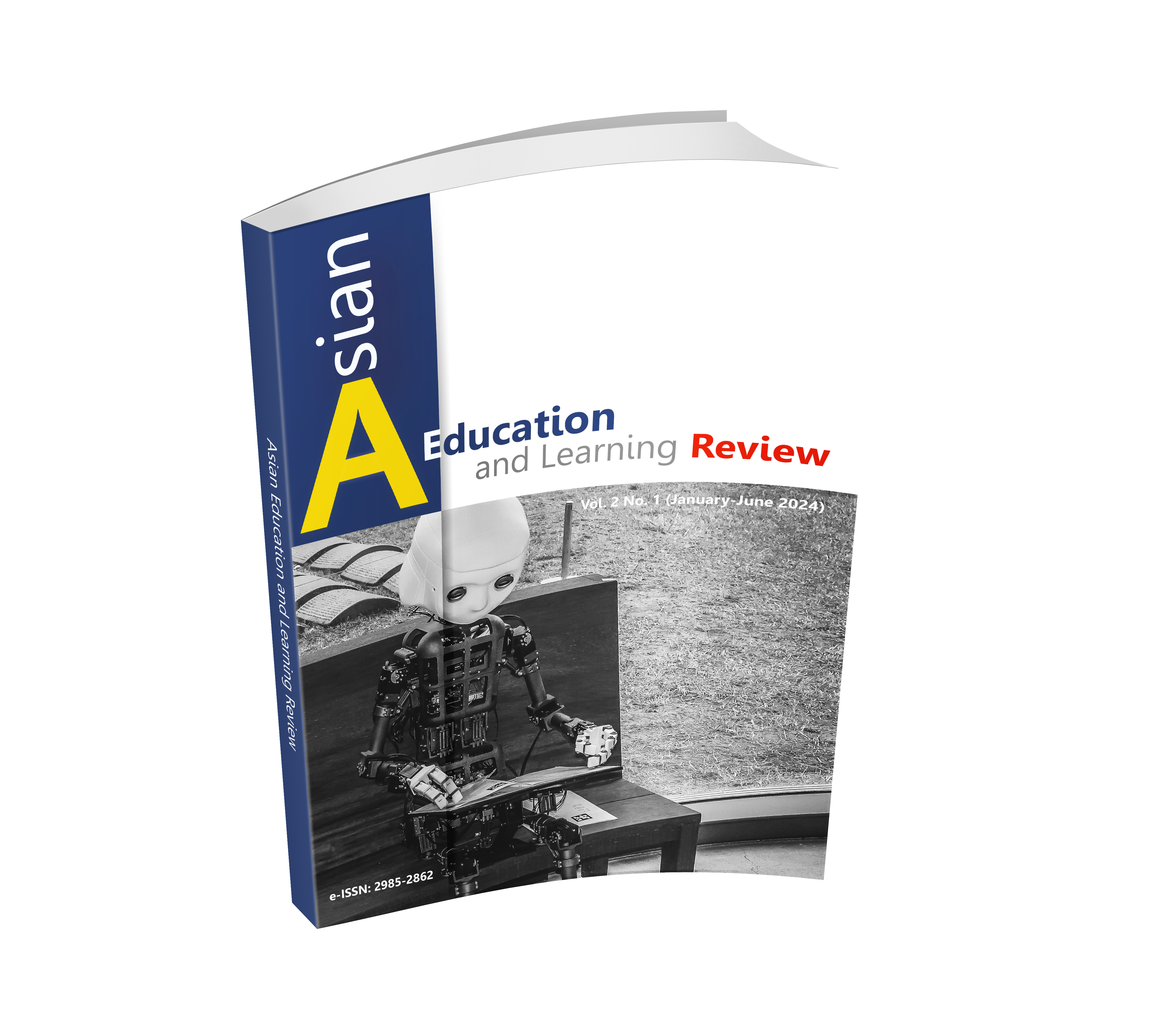LEARNING PHILOSOPHY: THE LEARNING CAPACITY DEPENDS ON THE NATURAL LEARNING APPROACH COMBINED WITH THE CLASSROOM APPROACH
DOI:
https://doi.org/10.14456/aelr.2024.2Keywords:
Learning Philosophy, Natural Approach, Classroom ApproachAbstract
This study aims to shed light on the variables influencing learning capacity within the natural and classroom approaches by carefully examining a wide range of scholarly sources and analyzing important literature. This project seeks to clarify how learning philosophy influences educational theory and practice. To gain a deeper understanding of their impact on educational approaches and outcomes, the study combines empirical research with insights from academics such as Krashen, Terrell, and Gagné. The results found that a balanced strategy for maximizing learning capacity is provided by combining the natural approach, which emphasizes socialization and intrinsic motivation, with the classroom approach, which is concentrated on structured learning management. Teachers can design dynamic learning environments that stimulate curiosity and provide the structure and support needed for skill acquisition and knowledge retention by fusing elements of autonomy and guidance. In inclusion, the results found that a balanced strategy for maximizing learning capacity is provided by combining the natural approach, which emphasizes socialization and intrinsic motivation, with the classroom approach, which is concentrated on structured learning management. Teachers can design dynamic learning environments that stimulate curiosity and provide the structure and support needed for skill acquisition and knowledge retention by fusing elements of autonomy and guidance.
Downloads
References
Anderson, J. (2000). Cognitive Psychology and Its Implications. New York: Worth Publishers.
Anderson, T., & Dron, J. (2011). Three generations of distance education pedagogy. The International Review of Research in Open and Distributed Learning, 12(3), 80-97.
Bloom, B. (1976). Human Characteristics and School Learning. New York: McGraw-Hill.
Brimble, M., & Stevenson-Clarke, P. (2005). Perceptions of the workplace: A study of New Zealand employers. Journal of Education and Work, 18(4), 405-424.
Bruner, J. (1960). The Process of Education. Massachusetts: Harvard University Press.
Clark, R. (1994). Media Will Never Influence Learning. Educational Technology Research and Development, 42(2), 21-29.
Davidson, A., & Worsham, M. (2018). Exploring the effectiveness of naturalistic learning approaches in science education. Journal of Educational Research, 112(3), 321-336.
Deci, E., & Ryan, R. (1985). Intrinsic Motivation and Self-Determination in Human Behavior. New York: Plenum Press.
Dewey, J. (1916). Democracy and education: An introduction to the philosophy of education. New York: MacMillan.
Gagné, R. (1985). The Conditions of Learning and Theory of Instruction. Texas: Rinehart and Winston.
Gardner, H. (1983). Frames of Mind: A Theory of Multiple Intelligences. New York: Basic Books.
Johnson, A., & Smith, B. (2017). Integrating experiential learning into traditional classroom settings: A case study in higher education. Journal of Experiential Education, 40(3), 263-278.
Kant, I. (1996). An Answer to the Question: What is Enlightenment?. In M. Gregor. (ed.). Practical Philosophy (pp. 11-22). Cambridge: Cambridge University Press.
Krashen, S. (1982). Principles and practice in second language acquisition. Oxford: Pergamon Press.
Krashen, S., & Terrell, T. (1983). The Natural Approach: Language Acquisition in the Classroom. New York: Pergamon Press.
Means, B., Toyama, Y., Murphy, R., Bakia, M., & Jones, K. (2009). Evaluation of evidence-based practices in online learning: A meta-analysis and review of online learning studies. Washington, D.C.: U.S. Department of Education.
Ormrod, J. (2006). Educational Psychology: Developing Learners. New Jersey: Pearson Merrill Prentice Hall.
Richards, J., & Rodgers, T. (2001). Approaches and Methods in Language Teaching. New York: Cambridge University Press.
Skinner, B. (1957). Verbal Behavior. New York: Appleton-Century-Crofts.
Smith, J., & Jones, L. (2019). Classroom-based instruction: A comparative study of language learning outcomes. Modern Language Journal, 103(2), 245-261.
Staker, H., & Horn, M. (2012). Classifying K-12 Blended Learning. California: Innosight Institute.
Tomlinson, C. (2014). The Differentiated Classroom: Responding to the Needs of All Learners. 2nd ed. Virginia: Association for Supervision and Curriculum Development.
United Nations Educational, Scientific and Cultural Organization. (2015). Education for All 2000-2015: Achievements and Challenges. Retrieved from https://unesdoc.unesco.org/ark:/48223/pf0000232205.
Vygotsky, L. (1978). Mind in Society: The Development of Higher Psychological Processes. Massachusetts: Harvard University Press.

Downloads
Published
How to Cite
Issue
Section
License
Copyright (c) 2024 Authors

This work is licensed under a Creative Commons Attribution-NonCommercial-NoDerivatives 4.0 International License.






.png)


